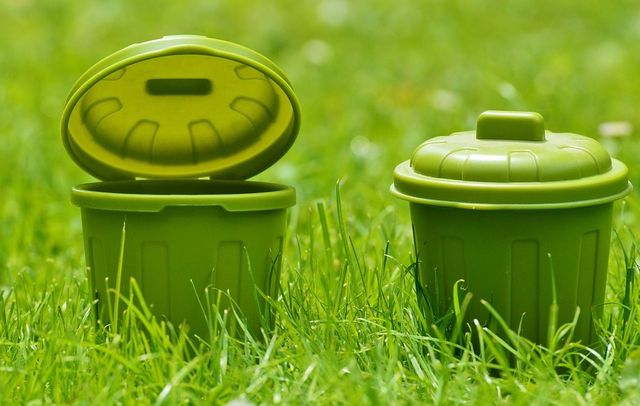



11, April 2019

Biodegradable plastics market consists class of plastics that is completely decomposed by the microorganisms into the environment by absorbing and interrupting the arrangement of the biodegradable plastic. The fabrication of the biodegradable molecules is done by both renewable sources like corn, sugar etc. or non-renewable sources like petroleum-based polymers, which have been in practice since ancient times.
The commercial availability of biodegradable plastics was since the 1980s. The global biodegradable plastics market is evaluating by considering the global plastics market as its parent market. Plastics have become the essential part of human life, finding applications in various industries including packaging, bags, disposable housewares, agriculture and horticulture, medical devices, consumer electronics and automotive, and construction.
The top 5 commercial applications in the biodegradable plastic market are:
Packaging
Biodegradable plastics such as conventional plastics bid a significant array of applications like agricultural foils, bags for compost, toys, textiles, nursery products, contact articles including disposable cutlery, salad cups and plates, overwrap and lamination film, containers and straws. The protection of food from the environment and preserving the food quality are the estimated benefits of bioplastic materials utilized in food packaging applications. These benefits are evident as the essentiality to govern and amend the automated and barricaded properties vary on the assembly of the biopolymer. It is also important to analyze alteration in the properties of the packaging material throughout the time of its contact with the food.
Disposable Housewares
Disposable housewares obtained from biodegradable plastics have become a marketable option, substituting conventional plastics like polyolefin and polystyrene. Housewares such as kitchen tools and utensils, bathroom accessories, washable storage containers and cups, toys, hooks and hangers are manufactured using biodegradable plastics. The Beach toys by Zoe b Organic is an example of Mirel bioplastic from corn. Also, cutlery produced from a biodegradable resin Cereplast is made from potato starch and corn is eligible as compostable plastic and is commercialized with the brand name Nat-Ur.
Medical Devices
The biodegradable polymer sutures are nontoxic and are rapidly being utilized in heart surgery and other procedures. These sutures are easily sterilized and dissolve in the body without any trace. The two types of sutures available in the market vary based on the surgery type, knots used, need for tensile strength and the possibility of infection. The plastic sutures are mainly made from lactic or glycolic acid, account for around 95% of the overall market, while others like implants, dental devices, and pins make up the remaining share. The films of guided-tissue-regeneration membranes made from a biodegradable polymer is used by dental surgeons, to prevent scabbing and allow the regrowth of the slow-growing connective and ligament cells. Furthermore, TyRx Pharma, Inc., launched a hernia repair device known as TYRX absorbable antibacterial envelope, a biodegradable tyrosine-derived polyarylate that improves the handling of mesh to boost efficient placement during surgery. The coating is reabsorbed, leaving behind minute material in the body.
Consumer Electronics
A huge section of the consumer market is currently built from plastics. The varied application of plastic in the electronics market are circuit boards, casings and data storage due to their lightness, mobility, toughness, and durability. The market is witnessing a surging demand for bioplastic products such as loudspeakers, touch screen computer casings, keyboard elements, vacuum cleaners, mobile casings, and mouse. SUPLA has boosted the PLA compounds from Corbion Purac, constructed on lactides for the consumer electronics industry. The company originally commercialized bioplastic touchscreen computer in collaboration with Kuender, an OEM/ODM. The other biodegradable consumer electronics products are mobile phones, computer keyboards, tablets laptops, games consoles and earphones.
Automotive
The automotive industry is witnessing essential transformations, focused on the reduction of fuel utilization and emission by decreasing the vehicle’s weight. The recyclability issue is the key reason to alter the market components with bioplastics. In fact, some leading automotive brands have successfully equipped bio-based plastics like bio-based polyamides and polyesters, aiming to reduce the environmental impact of their product. The components obtained partially or completely from bioplastics provide safety advantages, which holds key significance in the transportation industry. DuPont’s Sorona EP PTT polyester launched the first commercialized automotive application the interior vent louver vanes for the Toyota Prius. Bioplastics have been a successful material in a number of automotive applications, owing to the distant potential in reducing environmental impact and high performance.
The global biodegradable plastics market consists of only 1% of the total plastic market. However, it is to evolve at a rapid growth rate in the coming years, owing to consistent R&D activities, environmental awareness among people and stringent rules and regulation by government. Moreover, the current trends of consumers inclination towards eco-friendly products, utilization of bio-based and renewable raw material and biodegradability are also leveraging the market growth. In spite of that, high cost is still the major barrier to the advancement of the market.

Prevalent cases of terrorist attacks in today’s world is increasing the need for severe standards of security for public safety, and the global market for biometric technology scrupulously accommoda..
Prevalent cases of terrorist attacks in today’s world is increasing the need for..